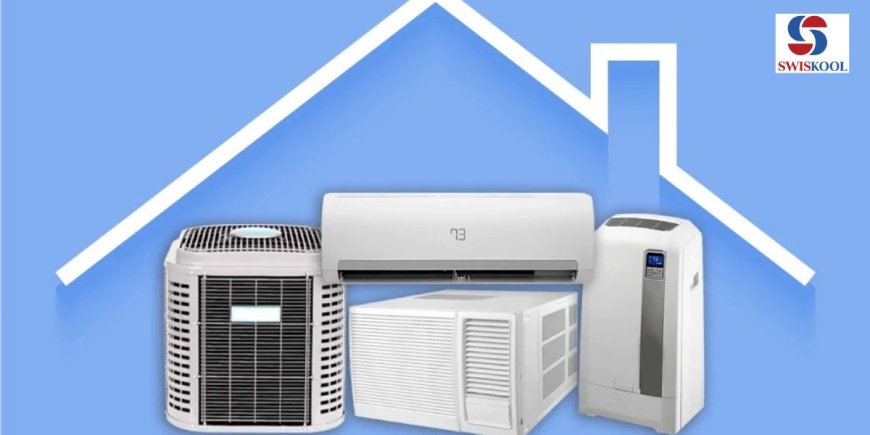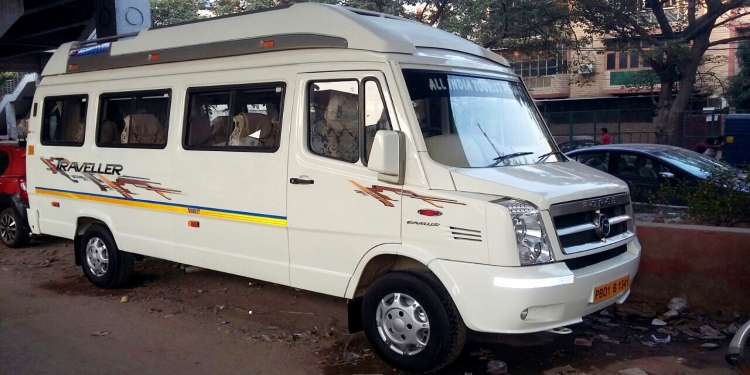Types of Air Conditioners: Which One Is Right for You?
Air Conditioners

An air conditioner can literally save lives when the temperature rises. Given the variety of options, though, how would you decide which one would be ideal for your workplace or house? Depending on your need, budget, and available space, every kind has advantages and drawbacks.
The most often used kinds of air conditioners, their operation, and which one would be most suitable for you will be broken out in this text.
1. Window Air Conditioners
What Is a Window AC?
One single unit appropriate for a window frame is a window air conditioner. One box has all the required elements: compressor, condenser, evaporator, and fan.
Pros:
-
pros include affordable installation fits for most standard windows;
-
good for small spaces;
-
ideal for cooling single rooms.
Cons:
-
Blocks Window: The window cannot be accessed during installation.
-
Not suited for big spaces, noise can be louder than other forms of cooling power.
-
Small homes, bedrooms, or businesses where central conditioning is not required will find the best fit here.
2. Portable Air Conditioners
What Is a Portable AC
A portable air conditioner is a moveable appliance wheeled from one room to another. It vents hot air via a small opening or a window-based hose.
Advantage:
✔ No permanent installation; move about easily.
✔ Good for Renters: The room is not altered necessary.
✔ Flexible Placing: One can apply it in several rooms.
Cons:
-
It uses more energy than other forms, can be hefty, is not as silent as some options, and takes floor space.
-
Those who require temporary cooling or cannot install a window or split AC should find the best fit here.
3. Split Air Conditioners (Ductless Mini-Split)
What Is a Split AC?
Two basic components make up a split air conditioner:
-
A cool air-blowing interior unit is installed on the wall.
-
An exterior unit—that is, one with the compressor.
Pros:
Great for homes without central air,
✔ Quiet Operation; the noisy component is outdoors;
✔ Energy Efficient; uses less electricity than window or portable units;
✔ No Ductwork Needed
Cons:
-
More costly than window or portable air conditioning systems, professional setup calls for a specialist.
-
This is for homes without ductwork or cooling particular rooms without a central system.
4. Central Air Conditioning
What Is Central AC?
By means of a ducting and vent system, central air conditioning cools a whole house. It ties in with a thermostat regulating the temperature.
Pros:
✔ Entire Home - Perfect for big homes.
✔ Constant Temperature: Makes every room equally cool.
✔ Out of Sight: Nothing indoor consuming space.
Cons:
-
Very costly to install; it cit alls for professional setup and ductwork.
-
Greater Energy Use: If not utilized sensibly, this could raise electric bills.
Those who already have ducting and wish for whole-house cooling will find the best fit here.
5. Smart Air Conditioners
What Is a Smart AC?
A smartphone app lets one use Wi-Fi to control a smart air conditioner. It can be planned or changed remotely and usually runs alongside voice assistants.
Pros:
✔ Remote Control – Change temperature anywhere.
✔ Energy Savings: Designed to run just when required, this can
✔ Voice Control performs with smart home systems.
Cons:
-
Dependent on Wi-Fi; requires a consistent internet connection; costs more than simple models.
-
Perfect for tech-savvy consumers seeking an energy economy with ease.
6. Evaporative Coolers (Swamp Coolers)
What Is an Evaporative Cooler?
Dry climates would find an evaporative cooler perfect since it cools the air using water. It cools warm air, passing wet pads before recirculating it within.
Pros:
-
Less energy is used; running this is less expensive than running conventional AC.
-
Adds humidity; this is helpful in dry environments.
-
Eco-Friendly: No dangerous refrigerants.
Cons:
-
Pads have to be cleaned and water supplied; they only work in dry climates and are not useful in humid locations.
-
Ideal for hot, dry environments with low humidity
7. Floor-Mounted Air Conditioners
What Is a Floor-Mounted AC?
Like a split AC, however, instead, the interior unit is positioned close to the floor rather than the wall.
Pros:
-
Good for rooms with low wall space; perfect if walls cannot sustain a unit.
-
Easier Airflow: Ground-level cool air spreads better.
Cons:
Fewer models are available than wall-mounted units; they take up floor space and could be in the way.
Best For: Rooms where wall installation is not feasible.
Which Air Conditioner Should You Choose?
Here’s a quick guide to help you decide:
|
Type |
Best For |
Budget |
|
Window AC |
Small rooms, renters |
Low |
|
Portable AC |
Temporary cooling, no installation |
Medium |
|
Split AC |
Homes without ducts, quiet operation |
Medium to High |
|
Central AC |
Whole-house cooling |
High |
|
Smart AC |
Tech lovers, remote control |
Medium to High |
|
Evaporative Cooler |
Dry climates, eco-friendly |
Low to Medium |
|
Floor-Mounted AC |
Rooms with low wall space |
Medium |
Final Tips Before Buying:
-
Verify the room size and ensure the AC has sufficient BTUs for your area.
-
Energy Efficiency: To cut costs, seek highly rated equipment.
-
Installation needs: Some call for expert assistance, which increases the expenses.
Last Words
Your budget, space, and cooling requirements will all determine the correct air conditioner for you. A window or portable air conditioner can be ideal if you need something basic and reasonably priced. Centre AC is perfect if you wish for whole-house cooling. A split AC is a fantastic option for a mix of quiet running and efficiency.






























































































































































